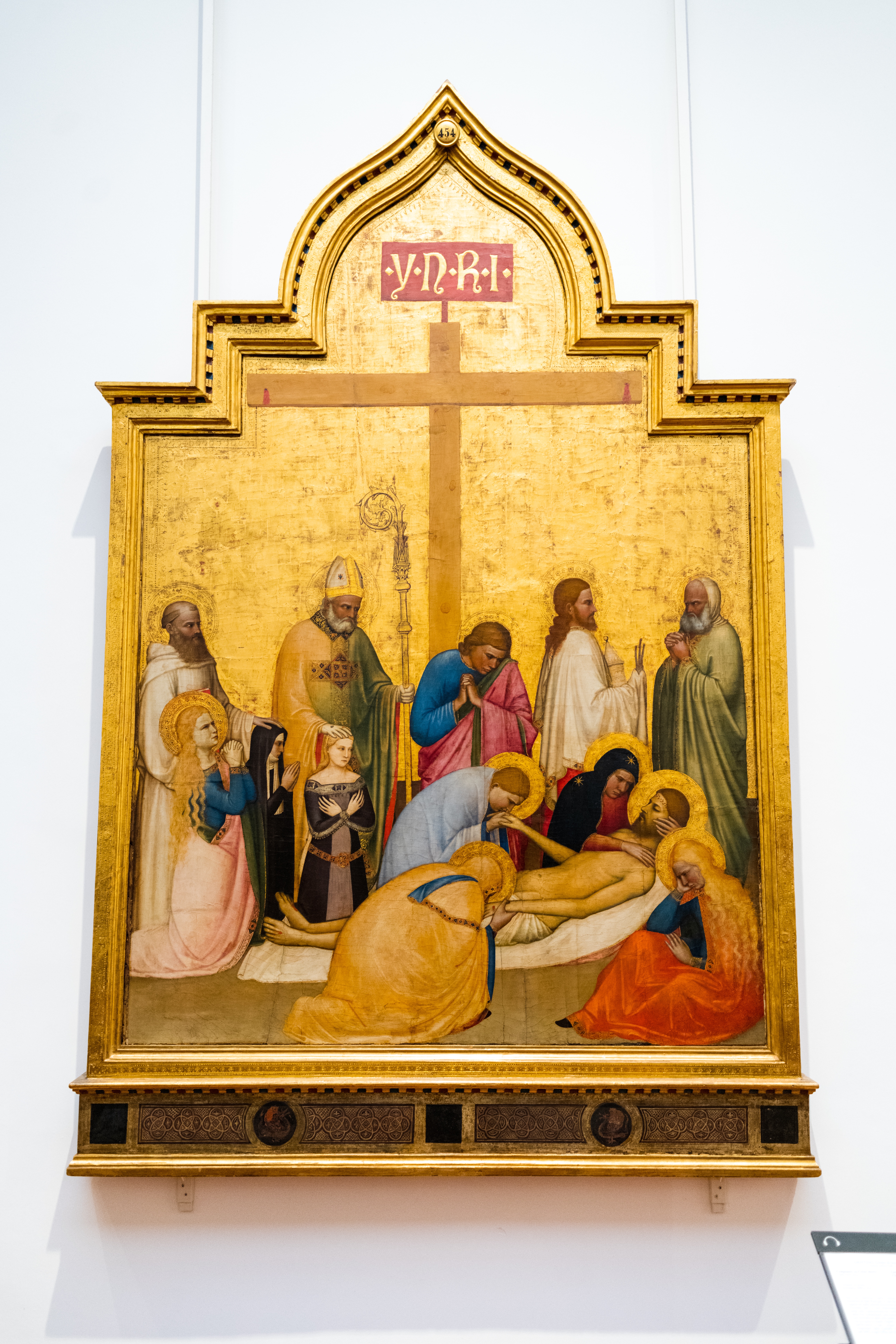
I Believed the Lie
Not many years ago, I realized I’d internalized a lie. A lie that wreaks havoc. One that many others have believed too. I believed the lie that the Divine One values his sons more highly than his daughters—that, by design, woman is inferior to man.
The Lie of Women’s Inferiority
In a human sense, this lie plays out by characterizing men as deserving of life’s focus and spotlight, with women functioning as accessories. In a reverse example, Ken tells Barbie in the movie Barbie, “I don’t know who I am without you… There’s no just Ken. That’s why I was created. I only exist within the warmth of your gaze.” In my life, the lie of female inferiority had its genesis in my childhood (a story I wrote here). My dad, late in his life, and after he’d accepted Jesus as Lord, admitted to me that he valued his son over his daughters. Unfortunately, Dad believed the lie too.
The Perpetrator of Lies
Scriptural evidence reveals the perpetrator of such lies is untrustworthy and intent on causing evil: “The thief comes only to steal and kill and destroy” (John 10:10a), and “Your enemy the devil, like a roaring lion, is on the prowl looking for someone to devour” (1 Pet 5:8). Therefore, it’s not surprising to see a common thread in history of the devaluing of women. For example, in the first century, the testimony of women in a Jewish court of law was banned. According to Josephus, an early Jewish historian, the witness of women (even multiple women) is unacceptable because, as he writes, “of the levity and boldness of their sex.”[1]
Early Church Views on Women
John Chrysostom, a prolific writer in the early church, wrote that women are “defective.” Influenced by the pagan philosopher Aristotle, many early church Fathers believed women were inferior to men. Theologian and philosopher Thomas Aquinas described women as “inferior in body, intellect and reason.” During the Protestant Reformation, Martin Luther wrote, “There was a greater wisdom in Adam than in the woman.”[2]
Modern-Day View (Minority) on Women
Then, we have a current–day example perpetuating the view of women’s intellectual inferiority. Rolling Stone magazine co-founder Jann Wenner’s recent inflammatory remarks about female and black musicians cost him his board seat at the Rock and Roll Hall of Fame, a museum he helped create. In his new book The Master, Wenner featured seven white male “philosophers of rock.” When questioned about its’ lack of diversity, he said he didn’t find female nor black musicians “articulate” enough. Regarding women, Wenner remarked, “Just none of them were as articulate enough on this intellectual level… It’s not that they’re not creative geniuses.”[3]
Women and the Early Church
Some of you may say, “Wait, stop the presses! Historical evidence shows that women were deeply invested in, active at the center of, and visible in the early church.” And, you would be correct. Written records reveal that non-Christian leaders viewed early Christianity to be a women’s cult because so many women were instrumental in its development and active in its mission.[4]
Jesus and Women
Jesus showed the highest regard for the worth of women in his life and teaching. He was revolutionary for the times by ministering to, and with, women. Jesus embraced women, unmarried and married, as his pupils—in public and private (Luke 10:38–42; 23:27–31), evangelists (John 4:1–42), disciples (Luke 8:1–3), and financial supporters (v. 1-3). In the Gospels, fifteen women are named, including eight disciples of Jesus: Joanna, Martha, Mary of Bethany, Mary Magdalene, Mary the mother of James and Joses, Mary the wife of Clopas, Salome, and Susanna.
At a time when a woman’s testimony was inadmissible in court, God chose women as key witnesses to Jesus’s conception, death, and resurrection, along with the descent of the Spirit at Pentecost. Mary Magdalene was the first to see Jesus resurrected. He told her to go to her brothers and tell them that he had risen (John 20:14–18). The core doctrines of the Christian faith depend on the eyewitness testimony of women. To Christ and by Christ, women have inherent value equal to that of men.
Women and House Churches
Christianity initially grew through house churches. In the biblical record, more women are named in association with house churches than men. MacDonald writes, “Scholars now recognize that because so much important activity took place in a sphere traditionally associated with women, possibilities for women’s involvement in leadership roles must have been greatly increased.”[5]
Paul and Women
The apostle Paul ministered alongside women including Lydia, Priscilla, Phoebe, and Junia. He used the terms synergos [fellow worker; companion in work] and diakonos [deacon or servant] to describe both himself and his co-laborers, whether male or female (Rom 16:1, 3–5; Phil 4:23). In Romans 16:1–16, Paul praises ministry workers and leaders, including ten women. Regarding Paul’s valuing of women, historian Margaret MacDonald notes, “When one encounters Paul’s female co-workers there is no evidence of a reduced participation in the Apostle’s public ministry in comparison to male workers” (Phil 4:2-3).[6]
The Church’s Historic View of Women
Theologian William Witt notes that until the mid-twentieth century, the church’s position, Protestant and Catholic, has historically been against women exercising church leadership or authority over men. Why? Because the belief was that women had “an inherent ontological incapacity.” In other words, for centuries women were considered defective in their very being. Witt continues, “Women were characterized as less intelligent, more sinful, more susceptible to temptation, emotionally unstable, incapable of exercising leadership.”[7]
A Major Shift in the Church’s View of Women
Fortunately, the historic view of women held by the church changed during the mid-twentieth century. Mainline churches shifted from arguing that women are inferior to affirming the essential equality of men and women—both moral and intellectual–equality in their essence (while affirming sex differences). Witt writes, “The historic claims about women’s essential inferiority and intellectual incapacity for leadership simply disappeared.”[8]
Let’s Continue the Conversation on Women’s Worth
In next month’s article (coming on October 18th), I’ll explore further the topic of the divine value of women. Join me to examine the biblical record beginning with Genesis 1. Creation provides the starting point for defining “woman,” her being, her purpose, and her gifts. We will seek to answer the question: What does the Bible say about the nature and value of humankind, including the nature and value of woman? Spoiler alert: Clear biblical evidence illuminates that the Divine One values his daughters as highly as his sons.
[1] Andreas J. Köstenberger and Justin Taylor, “Five Errors to Drop from Your Easter Sermon,” ChristianityToday.com, April 15, 2014. https://www.christianitytoday.com/ct/2014/april-web-only/five-errors-to-drop-from-your-easter-sermon.html.
[2] Judy Wu Dominick, “How Some of the Early Church Fathers’ Views on Women Affect Us Today,” lifereconsidered.com, February 12, 2020, accessed March 3, 2022, https://lifeconsidered.com/2020/02/12/how-some-of-the-early-church-fathers-views-on-women-affect-us-today/.
[3] Laura Parnaby, “Rolling Stone Magazine Cofounder Axed from Rock and Roll Hall of Fame Board,” Dailymail.com, September 18, 2023.
[4] Margaret Y. MacDonald, Early Christian Women and Pagan Opinion,” (Cambridge: Cambridge University Press, 1996), 2.
[5] MacDonald, Early Christian Women, 30.
[6] MacDonald, Early Christian Women, 36.
[7] William Witt, Icons of Christ: A Biblical and Systematic Theology for Women’s Ordination, (Waco, Texas: Baylor University Press, 2020), 29.
[8] Witt, Icons of Christ, 29.




